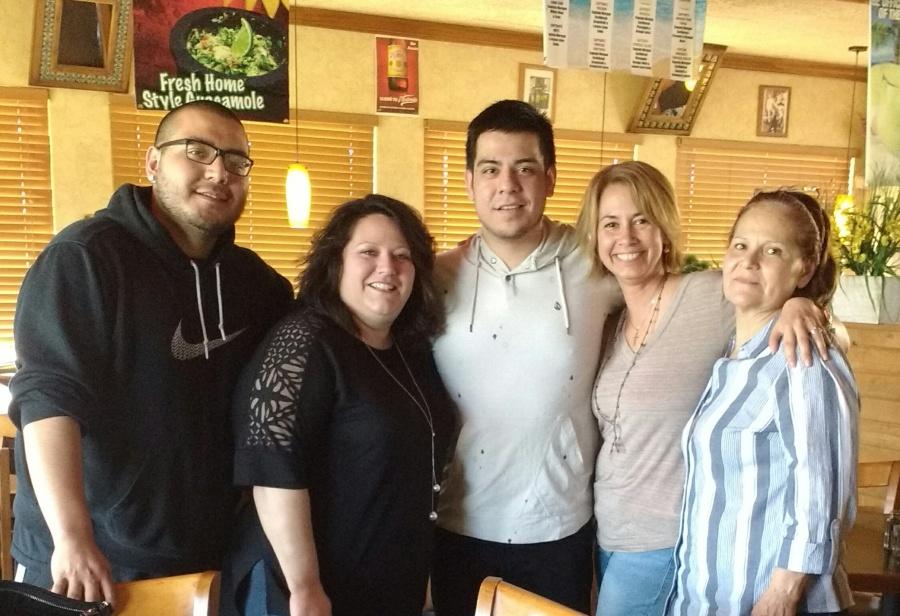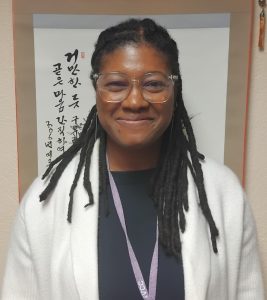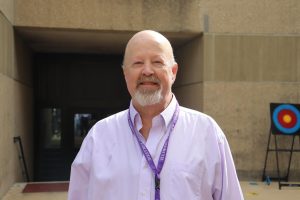An immigration system built to fail
Oscar Flores (from left), Abby Pyska, Edgar Flores, Diane Scoma and Trinidad Valdez are all smiles on Flores’ release date, April 22. Edgar Flores had been fighting deportation for seven months.
April 28, 2016
Life changed for IVCC student Edgar Flores in summer 2015 after he was stopped by Homeland Security for an immigration violation, but his community has supported him through the ordeal.
The 2015 stop was the second time Flores had encountered Homeland Security. He explained they took his residence card because he had a cannabis charge on his record from eight years ago, and then in September, he was arrested and scheduled for deportation.
It took weeks before family and friends were able to find out what had happened and start a community campaign that would take months before his eventual April 2016 release.
A few years before the 2015 stop, Flores had his first encounter with Homeland Security, when they started investigating him after he was stopped at the airport. He explained nothing happened until a few years later when he returned from his second vacation outside the country.
Despite Flores living in the United States his entire life of 28 years, his residence status was in jeopardy. Flores has many ties to his community: his job of nine years, his full-time college attendance, his home and his family.
Once he was detained in September, Flores had to have his cannabis case reopened in La Salle County Court to avoid the deportation.
Taking a trip
Flores is a legal permanent resident of the United States and “[there’s] nothing preventing legal residents from taking a short trip,” said Daniel Thomann, immigration attorney for Flores.
During September 2015, Flores was detained in Chicago by Immigration Custom Enforcement (ICE).
“I was stunned by everything that was happening,” he said. Flores explained he was told “you are on mandatory holding.”
Public court records indicate in 2008 Flores took a plea of guilty for a felony cannabis charge and served one year probation. Immigration and Nationality Act 237 states “Any alien who is convicted of a crime for which sentence of one year or longer may be imposed, is deportable.”
“Criminal conviction causes a lot of problems in states because criminal lawyers don’t know about immigration law,” said Thomann. He further explained judges warn all defendants if they plead guilty and are not U.S. citizens, they could get deported.
The problem with this “is you’ll follow attorney lead and it doesn’t matter what the judge tells you, you have [take the plea deal] to because of plea deal,” said Thomann.
Flores explained he regrets his mistakes of “hanging with the wrong crowd. I can take it as a positive or negative: those circumstances made me who I am now; better.”
Despite federal law, nothing happened to Flores for seven years. However, ICE, as of 2015 “placed increased emphasis and focus on the removal of convicted felons….”
Battling the charge
Flores explained he was told by detaining officers, “[The] best option was to do a post-conviction in Ottawa,” to clear the felony charge and the immigration violation will cease to exist. He stayed in holding for a month and half before he was told there wouldn’t be a bail.
Flores said while locked up he continued his college work.
“Instructors are very supportive; Diane is very supportive,” he said, referring to Diane Scoma, a counselor of IVCC Project Success, who sent his assignments to him. Scoma organized a campaign of support for Flores.
“Edgar is one of the most giving, compassionate, humble students I’ve ever met,”said Scoma. She continued “I could not stand by and let ICE destroy his life without doing everything in my power to stop it,”
Flores was humble about how he spent his time in detention.
Flores continued to give a helping hand to others: “I signed up to be the interpreter, not just for officers but to help the people here more than anything.”
Flores gave emotional support to other inmates also, “I can help them cope with the whole idea of you’re not condemned to be in jail one day, but you’ll be free.”
Flores’ attorney feels this way about his ordeal: “I think he accepts consequences that I don’t think he has to,” said Thomann.
A petition was started by Scoma to assist with Flores case on March 15 and within three weeks 1,185 signatures was obtained from IVCC students, the leadership teams, family and friends, faculty, staff, administration and board members.
“All the support he got shows what an impact he has on the community,” said fellow student Perla Escatel.
Despite the immigration system being difficult, people come to the United States because they want the “stability it provides, work, travel and live some sort of semblance to a life,” said Thomann.
Flores explained even though he lives in this country, some other people that were detained with him didn’t, but they were able to get parole or bond even though their cases weren’t cleared.
“I’m not a threat to society, said Flores.
Changes to immigration laws would be “hard to change, because it has to work with every state,” said Thomann.
“It’s really sad, I know a lot of good people and it don’t matter what type of person they are in the community, but to the government just a piece of paper and not an American citizen,” said Rebecca Fecht.
Flore explained he was glad he was able to prove his innocence.
As of press time, Flores post-conviction case in La Salle County Court was dismissed. He was released by federal officials on April 22.




